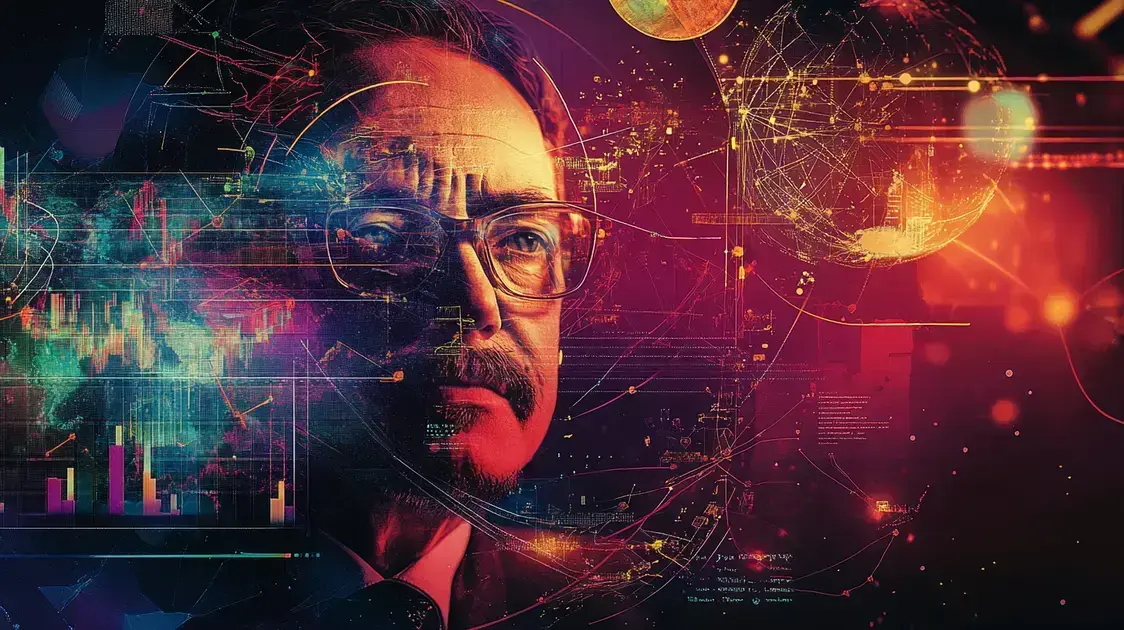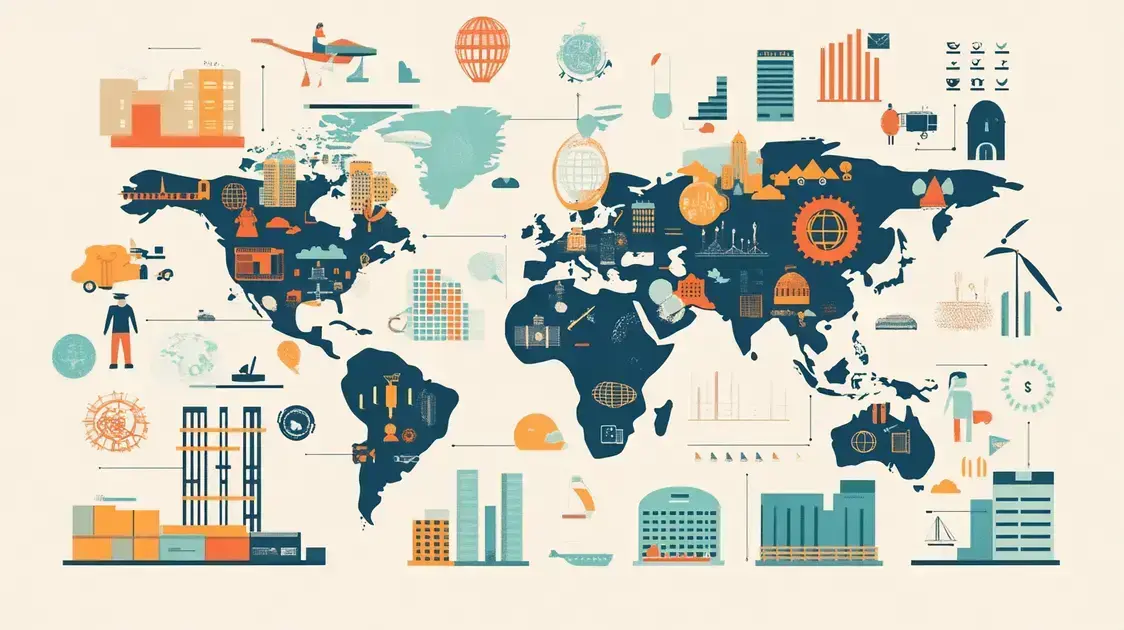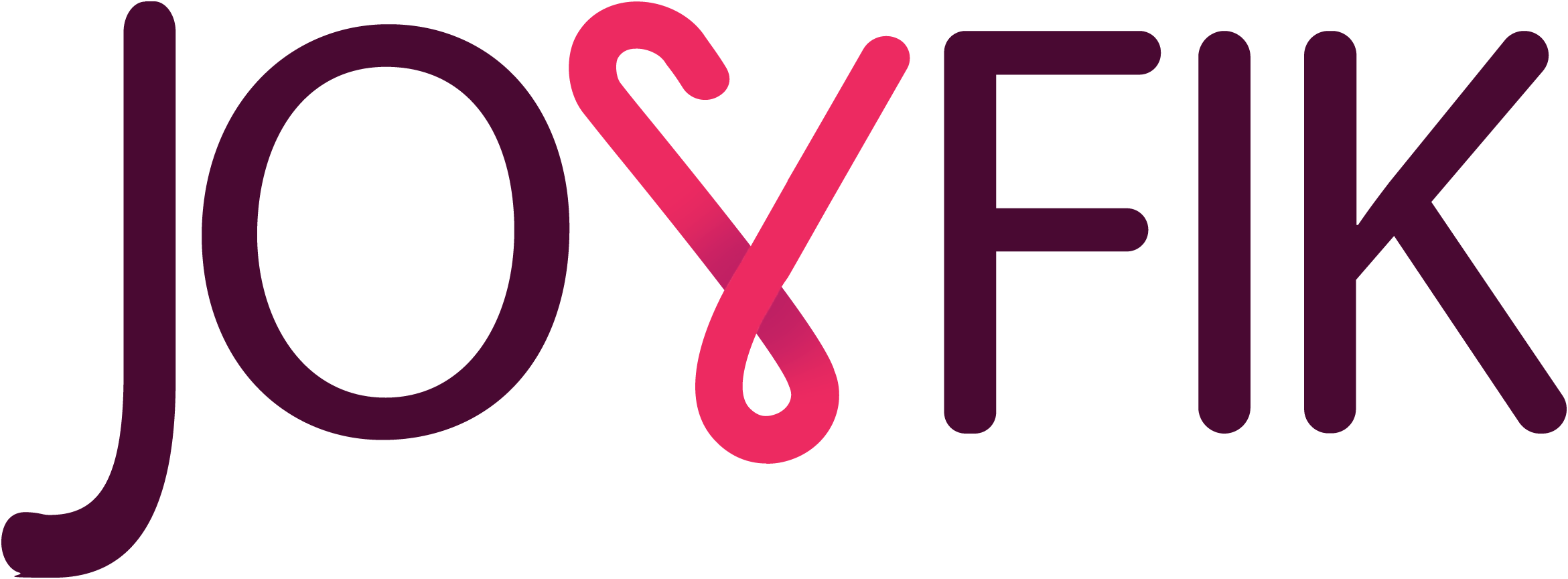Political economy is the study of how politics and economics interact. It examines how government policies shape the economy and how economic forces influence political decisions. By understanding this relationship, we can better analyze economic trends and political strategies.
Governments play a crucial role in directing economic policies, such as taxation, trade, and social welfare programs. These decisions impact everything from job markets to healthcare systems, affecting citizens’ everyday lives.
At the same time, economic conditions, like recessions or booms, can influence political stability and decisions. Political economy helps us see the dynamic between these two forces and how they shape society.
Understanding Political Economy
Understanding Political Economy is essential for grasping the complex relationship between politics and economics. This field investigates how political forces and institutions impact economic systems and vice versa. By studying political economy, we can better comprehend how government decisions shape economic policies and their effects on society.
The Bi-Directional Influence
Political economy highlights the bi-directional influence between politics and economics. Economic conditions can lead to political change, while shifts in political power can affect economic policies. For example, during a recession, a government may change policies to stimulate economic recovery, which, in turn, influences public opinion and electoral outcomes.
Key Concepts in Political Economy
Some of the key concepts include the role of institutions, the importance of power structures, and the influence of ideology. Institutions play a crucial role in shaping the economic environment. They govern how resources are allocated and how economic actors interact.
Economics as a Political Tool
Economics can serve as a political tool. Policies regarding taxation, trade, and welfare can be used to achieve political goals, such as addressing inequality or promoting specific industries. Understanding these tools helps evaluate the effectiveness of government decisions.
Social Impacts
The impact of political economy extends to social issues as well. Economic disparities can create social tensions, influencing political stability. Therefore, analyzing political economy involves looking at both economic outcomes and the broader social context.
Global Perspectives
In a globalized world, understanding political economy means examining how international relations influence local economies. Trade agreements, tariffs, and multinational corporations can all play significant roles in shaping economic policies and practices.
The Importance of Critical Thinking
Finally, critical thinking is vital in political economy. It’s crucial to analyze how interests shape policies and question the motives behind decisions that affect economies and societies. This awareness can empower citizens to engage more deeply in political processes.
Historical Perspectives on Political Economy
Historical Perspectives on Political Economy provide key insights into how economic and political systems have evolved over time. By examining historical contexts, we can understand the roots of contemporary issues.
Early Theories
In ancient times, thinkers like Aristotle analyzed the relationship between politics and economics. He noted that a state’s ability to thrive depended on its ability to manage resources and relationships. These early ideas laid the groundwork for future political economy theories.
Medieval Contributions
During the medieval period, scholars such as Thomas Aquinas addressed the moral implications of economics. His writings suggested that economic activities should align with ethical standards, blending politics and morality in economic decision-making.
The Rise of Classical Economics
The 18th and 19th centuries marked the rise of classical economics. Figures like Adam Smith introduced concepts of free market economics, emphasizing self-interest. His work – The Wealth of Nations – highlighted how economic freedom can lead to societal prosperity.
Marxian Response
In response, Karl Marx critiqued capitalism, focusing on class struggle and economic inequalities. His perspective brought a new understanding of how economic systems can shape political power dynamics.
Key Historical Events
Events such as the Industrial Revolution transformed political economy. Rapid changes in technology and labor led to new social classes and demands for representation, influencing governance and economic structures.
20th Century Developments
The 20th century saw the emergence of welfare economics, which emphasized government intervention to address social inequalities. Thinkers like John Maynard Keynes argued for active government roles in the economy, especially during economic downturns.
Global Context
In addition, viewing political economy through a global lens reveals how colonialism and globalization have shaped economies. These historical elements inform current challenges faced by developing nations and their interactions with wealthier countries.
Key Theories in Political Economy

Key Theories in Political Economy explore various frameworks that explain the interaction between politics and economic systems. These theories help us understand how different ideologies shape government policies and economic outcomes.
Classical Economics
Classical economics emerged in the late 18th century, with Adam Smith as a key figure. His idea of the invisible hand suggested that individuals pursuing their self-interest can lead to economic prosperity for society as a whole. This theory promotes minimal government intervention in markets.
Marxist Theory
The Marxist theory, founded by Karl Marx, critiques capitalism. It emphasizes the role of class struggle and economic exploitation. According to Marx, the ruling class controls resources, leading to inequality. His ideas inspire movements advocating for socialism and a redistribution of wealth.
Keynesian Economics
Developed by John Maynard Keynes during the Great Depression, Keynesian economics argues that governments should intervene in the economy, especially in times of crisis. By increasing public spending, they can stimulate demand and support economic recovery. This approach highlights the importance of aggregate demand.
Monetarism
Monetarism, led by economists like Milton Friedman, focuses on the role of money supply in the economy. Monetarists believe that controlling inflation and managing the money supply can stabilize the economy. They argue against excessive government intervention and prioritize market efficiency.
Supply-Side Economics
Supply-side economics emerged in the 1980s, emphasizing that lower taxes and reduced regulation can lead to economic growth. Advocates argue that stimulating production will create jobs and increase overall wealth, benefiting everyone in society.
Institutional Economics
Institutional economics studies how institutions affect economic behavior. It looks at formal and informal rules that shape economic activity. This theory argues that effective institutions can improve economic performance by ensuring property rights and reducing corruption.
Global Political Economy
Global political economy examines how global interactions influence national policies. It explores trade relations, globalization, and the impact of multinational corporations. Understanding this theory helps analyze current issues like trade wars and international cooperation.
The Role of Government in the Economy
The Role of Government in the Economy is crucial for shaping how resources are allocated and how economic activity functions. Governments can impact the economy in various ways, influencing both growth and stability.
Regulation
One primary role of government is regulation. This includes creating rules to ensure fair competition and protect consumers. Regulations can limit monopolies and ensure that businesses operate fairly. For example, antitrust laws prevent large companies from unfairly dominating the market.
Taxation
Governments use taxation as a tool to provide public services like education, healthcare, and infrastructure. By collecting taxes, the government can redistribute wealth and invest in programs that benefit society as a whole. Tax policies can influence individual behavior and economic growth.
Public Services
Providing public services is another key role. Governments often produce goods and services that the private sector may not adequately provide, such as roads, schools, and public safety. These services contribute to overall economic health and the well-being of citizens.
Monetary Policy
Through central banks, the government controls monetary policy. This includes managing the money supply and interest rates to influence the economy. By adjusting these factors, governments can either stimulate growth during a recession or cool down an overheating economy.
Fiscal Policy
Fiscal policy involves government spending and tax decisions. When economies are sluggish, increasing government spending can boost demand and create jobs. Conversely, cutting spending may be necessary during periods of high inflation to stabilize prices.
Support for Innovation
Governments can stimulate innovation through funding research and development. By investing in new technologies and infrastructure, they foster economic growth and competitiveness. Grants and subsidies can encourage businesses to innovate and expand.
Addressing Inequality
Lastly, governments play a role in addressing economic inequality. Through social programs and welfare initiatives, they aim to lift disadvantaged groups and ensure a more equitable distribution of wealth. This not only helps individuals but can also promote social stability.
Globalization and Political Economy
Globalization and Political Economy are deeply intertwined, affecting how countries interact economically and politically. Globalization refers to the increased interconnectedness of economies worldwide, driven by trade, investment, technology, and cultural exchange.
Impact on Trade
Globalization has led to increased trade between nations. Countries can access markets beyond their borders, allowing them to specialize in products and services they produce efficiently. This phenomenon encourages competition and can lower prices for consumers.
Economic Integration
Economic integration happens when countries reduce trade barriers, allowing for smoother exchanges of goods and services. Trade agreements, like NAFTA and the EU, are examples of how governments work together to enhance economic cooperation. These agreements can boost investment and create jobs across borders.
Cultural Exchange
Along with economics, globalization promotes cultural exchange. People share ideas, lifestyles, and values, which can lead to greater understanding but also cause conflicts. For instance, local economies may struggle to compete with global brands, leading to cultural homogenization.
Labor Dynamics
Globalization influences labor markets as companies seek cost-effective solutions. Outsourcing jobs to countries with lower wages can result in job losses in higher-cost nations. However, it can also create opportunities in developing countries, improving living standards and fostering economic growth.
Political Implications
Globalization can impact political power. Countries that adapt successfully to global markets may gain influence, while those that suffer economic setbacks may face instability. This shift can lead to changes in government policies or public dissent.
Environmental Considerations
The global economy raises environmental concerns as industrialization can harm ecosystems. Governments must balance economic growth with environmental protection, leading to discussions about sustainable practices within global trade.
Challenges of Globalization
Despite its advantages, globalization poses challenges. Economic inequality can rise if benefits are not evenly distributed. Additionally, governments must navigate the complexities of international relations to maintain stability in the face of global competition.
Political Economy of Development

Political Economy of Development involves understanding how political and economic factors influence the growth and development of countries. This field examines how policies, institutions, and global forces shape economic progress.
The Role of Institutions
Institutions play a vital role in development. They include laws, regulations, and organizations that shape economic activity. Strong institutions can support growth by providing stability, ensuring property rights, and reducing corruption. When institutions fail, they can hinder progress and lead to economic instability.
Economic Policies
Governments implement economic policies that can promote or restrict development. Policies related to trade, investment, and taxation influence how resources are allocated. For instance, protective tariffs may shield local industries, but they can also lead to higher prices for consumers.
Globalization and Development
Globalization affects development by allowing countries to access international markets. Nations can benefit from foreign investments and technologies. However, reliance on global markets can also expose countries to economic shocks. Balancing these interactions is crucial for sustainable development.
International Aid
International aid can support development, especially in low-income countries. Aid comes in various forms, such as loans, grants, and technical assistance. While it can help finance projects, dependency on aid can perpetuate economic challenges if not managed properly.
Social Factors
Development is not solely about economics; social factors also play a critical role. Education, health care, and social welfare programs contribute to human capital, improving productivity and quality of life. Investing in social services can yield long-term economic benefits.
Environmental Sustainability
In the context of development, environmental sustainability is increasingly important. Economic growth should not come at the expense of the environment. Policies that promote sustainable practices can help protect natural resources and ensure that development is viable for future generations.
Political Stability
Finally, political stability is essential for development. Countries with stable governments attract more investment and foster a better business climate. Conversely, political unrest can disrupt economic activities and harm development efforts.
Contemporary Issues in Political Economy
Contemporary Issues in Political Economy encompass a range of challenges and topics that influence the interaction between politics and economics today. Understanding these issues is crucial for grasping the current global landscape.
Inequality
Income and wealth inequality remain significant issues in many countries. Economic growth has not been evenly distributed, leading to disparities in wealth. Political responses to inequality can include debates around taxation, minimum wage laws, and social welfare programs aimed at supporting the less fortunate.
Trade Conflicts
Trade conflicts have emerged as countries pursue protectionist policies. Tariffs and trade barriers can disrupt global supply chains, impacting economies worldwide. These conflicts raise questions about globalization and the balance between national interests and international cooperation.
Climate Change
Climate change poses a monumental challenge, impacting political and economic stability. Governments face pressure to adopt sustainable practices while balancing economic growth. Policies addressing climate change are essential for ensuring environmental and economic sustainability.
Technological Change
Rapid technological advancements are reshaping economies and labor markets. Automation and artificial intelligence pose challenges to job security and require new skills from the workforce. Policymakers need to address these changes to support workers and promote innovation.
Migration
Migration is another contemporary issue affecting political economies. People move for various reasons, including economic opportunities and fleeing conflict. This movement can stimulate economic growth but can also lead to political tensions over resources and integration.
Healthcare Access
Access to healthcare remains a critical concern across the globe. Governments must balance healthcare costs with the need for high-quality services. Economic policies on healthcare can directly impact public health and overall productivity.
Global Governance
Global governance issues, such as international trade agreements and financial regulations, play a crucial role in shaping the political economy. Cooperation among nations is vital to address challenges that cross borders, including pandemics and financial crises.
In Summary: Understanding Political Economy Today
The study of political economy is essential for grasping the dynamics that shape our world. By analyzing the key theories, the role of government, the impact of globalization, and contemporary issues, we can develop a comprehensive understanding of how economic and political forces interact.
Challenges such as inequality, trade conflicts, climate change, and technological advancements require thoughtful policies and international cooperation. Addressing these issues is critical for fostering sustainable development and ensuring shared prosperity across nations.
As we navigate through these complexities, recognizing the importance of political economy will empower us to make informed decisions that contribute to a fairer and more prosperous society.
